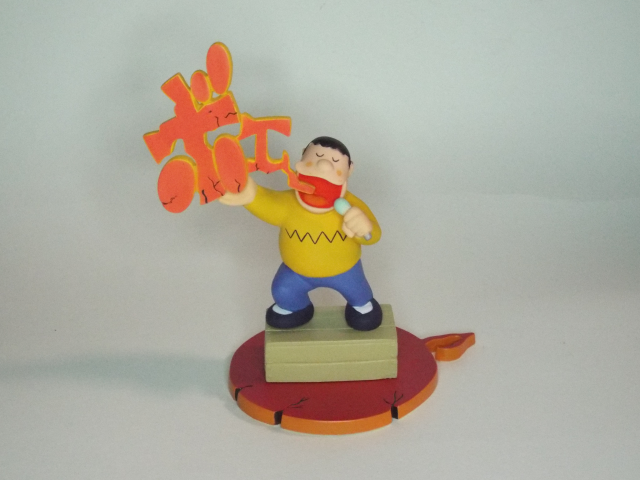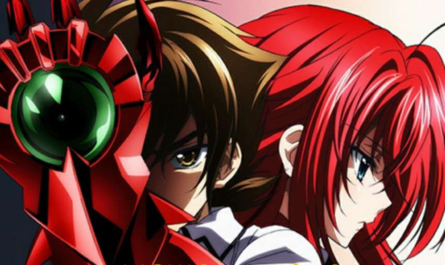Gian is deaf.
Many people will say that they know it even if they don’t say that.
Perhaps Gian is the most famous tone-deaf character in Japan.
In the original manga, Gian’s singing voice is expressed as “Boe,” “Bogee,” “Hoge,” “Oe,” etc., and strangely, no matter what song you sing, you can only hear it that way. No.
Gian’s song can’t even hear the lyrics.
Moreover, in the manga, the “Boe,” “Bogee,” “Hoge,” and “Oe” are expressed in oversized and extra-thick characters, and the characters have cracks. The translation is different.
Furthermore, those who listen to his singing voice suffer from health hazards such as dizziness, nausea, and headaches, and Doraemon and Nobita say that they can be “life-threatening,” so it can be said that it is no longer just a tone-deafness. NS.
However, when this becomes the anime version of Doraemon, the situation changes a little.
The anime version of Gian’s singing voice is not “Boe,” “Bogee,” “Hoge,” or “Oe.”
If you grew up watching the Oyama version of Doraemon, you might think of Gian’s song as “Oh, I’m Gian, Ga-Kidaisho- ♪. “
There was a song that Gian was singing, and there was a proper title, and he said, “I’m Gian!”
When I was a kid, when I was casually watching anime, I didn’t care about it, but a little question comes to my mind here.”
Huh? You couldn’t hear the lyrics of Gian’s song?” In the original manga, you can only hear “Boe,” “Bogee,” “Hoge,” and “Oe,” but the anime version. Then, regardless of whether he is good or bad, Gian is singing a song correctly.
To be precise, I can hear the lyrics properly.
What’s wrong with this?
I don’t think it’s the same person as the original manga.
However, while Gian was singing “I’m Gian!”, The screen was distorted and shaken, and Gian’s singing voice was echoed, and Nobita and his friends were in agony. It has a facial expression.
After all, Gian’s song seems to be strong even in the anime version. Gian is singing enthusiastically from another angle. I’m singing comfortably, but. However, please be calm and think about it here. Was Gian’s song that I watched in anime when I was deaf? Was it an out-of-tune song? In my memory, I could hear the lyrics of Gian’s song correctly, and I didn’t miss the pitch, so I think I sang it safely.
Perhaps I felt that the lyrics were heard correctly because the lyrics were developed on the TV screen along with Gian’s song.
No, that shouldn’t be the case.
“Doraemon” is not a song program.
I wouldn’t do that elaborate, and I don’t remember it at all.
Also, it seems that Gian was singing without losing the pitch, maybe because of the effect of the echo.
Regarding this, only once at work, a person asked me, “Can’t sing better?” And the effect of the echo was removed, but even if the echo is removed, Gian remains. I was usually singing without losing the pitch.
Here comes one incredible suspicion.
Perhaps the anime version of Gian is good at singing.
In the first place, Gian must have a lot of musical talent.
Because “I’m Gian Samada!”, Which was sung in work, is set to be Gian’s original song.
An original song means that you are writing and composing the lyrics yourself.
I don’t think many people have heard “I’m Gian Sama!” This song is a blockbuster in the entire chorus with up to number three.
By the way, if Gian were deaf, Nobita and his friends would be listening to the out-of-tune songs endlessly.
Is it possible to listen to a song in such a situation?
I’m sure you won’t be able to hold back in the middle of the song, and you’ll end up blowing out “Pu!”
However, Nobita and his friends couldn’t feel such a situation, and they just waited for the song to end, with a painful expression on their faces.
So, I think Gian isn’t tone-deaf.
The anime version of Gian’s song is a production in which a loud singing voice is echoed.
What can be read from this is that Gian’s singing voice is ridiculous and very noisy, and the quality of the voice is so bad that if you listen to it all the time, your physical condition will change.
Perhaps the early story is not a tone-deafness, but a “singing voice that is unbearable to listen to.”











